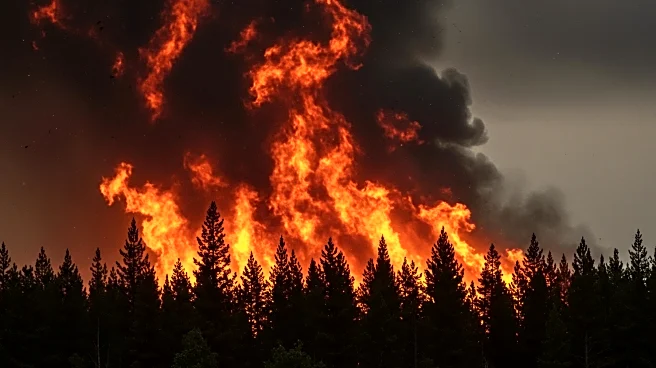What is the story about?
What's Happening?
Canada is experiencing its second-worst wildfire season on record, with fires spreading to prairie provinces and the Atlantic region, areas not traditionally affected. Tens of thousands have been evacuated, and resources are strained as officials battle out-of-control blazes. The shift in fire locations highlights the growing impact of climate change, with dry conditions exacerbating the threat. Provinces like Newfoundland and Nova Scotia have implemented bans on off-road vehicles and restricted outdoor activities to mitigate risks. Experts warn that the risk of wildfires is increasing across Canada, necessitating new strategies for prevention and response.
Why It's Important?
The spread of wildfires to new regions in Canada underscores the pervasive impact of climate change on natural disasters. The situation highlights the need for adaptive strategies and increased preparedness to protect communities and ecosystems. The fires have significant implications for public safety, infrastructure, and environmental conservation. As climate change continues to alter weather patterns, the risk of wildfires may increase globally, prompting international cooperation and policy changes. The crisis also emphasizes the importance of addressing climate change to prevent future disasters.
What's Next?
Canadian officials may enhance wildfire prevention and response strategies, including increased funding for research and adaptation. The situation could lead to policy changes and international collaboration to address climate change and its impacts. Communities may implement measures to protect against future wildfires, such as improved infrastructure and public awareness campaigns. The crisis may prompt discussions on sustainable land management and conservation efforts.















